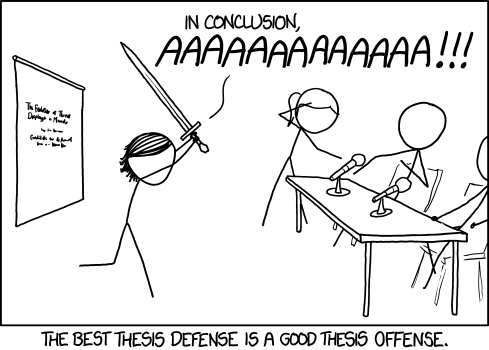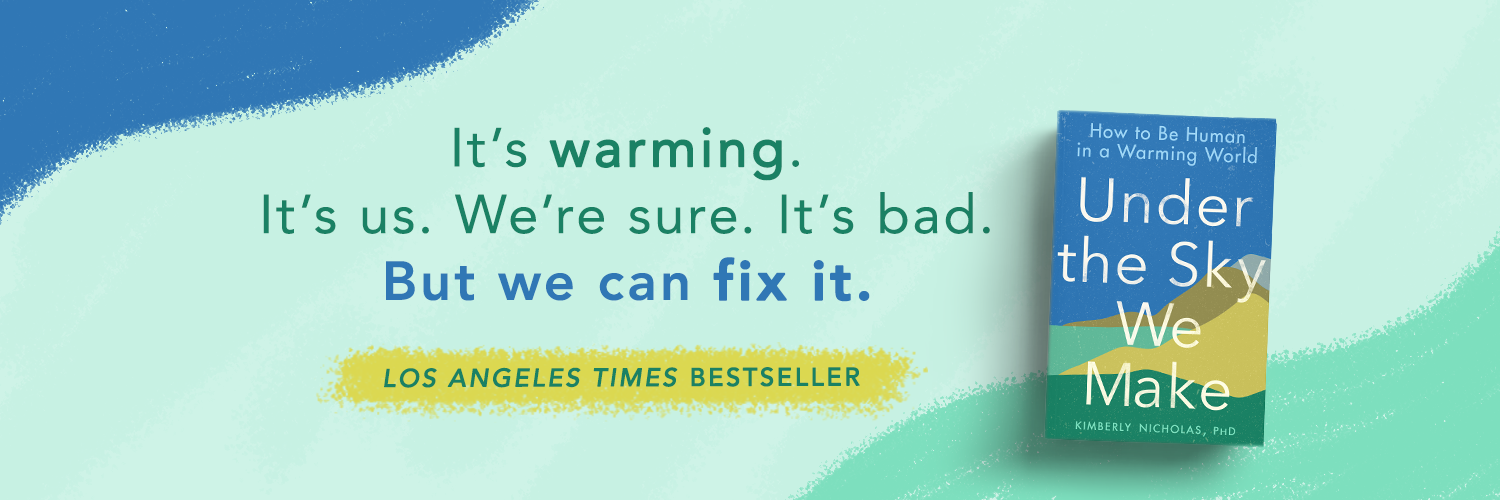|
Whoohoo, you wrote a thesis, congrats!
Now it's time to present it to the world, and defend it to your academic colleagues! This is exciting, and also stressful. That's normal. Do what you can to prepare (give a practice talk at least several days in advance to some supportive friends and incorporate their feedback for improvements; run through the talk at least several times until you are confident you have the timing down). After that, don't worry about being nervous. My experience with giving talks is that I am always nervous, and that's ok; I can be nervous and still do a good job. Here's my advice on structuring your presentation. For the session with your opponent, be prepared for both big picture and detail questions, on both your written thesis and oral presentation. The following are by no means exhaustive, but just a sample of some kinds of questions that have been asked in my experience (of course your own experience may vary). It's OK to take a moment to consider your answer, or to ask for clarification about what the opponent is looking for. Here are some questions you can prepare to answer (out loud on your own, or at the end of your practice talk with friends):
Good luck! You'll do great! Comments are closed.
|
Categories
All
Archives
November 2023
|
KIM NICHOLAS

 RSS Feed
RSS Feed

